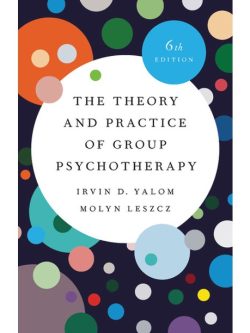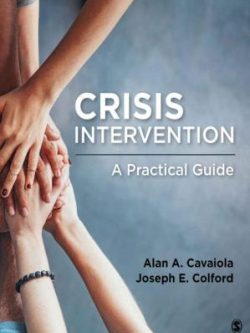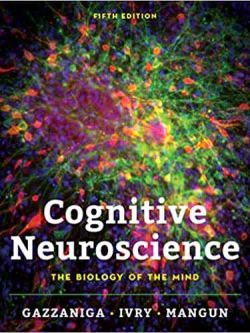Specifications
| book-author | J. Kelly Coker PhD LCMHC NCC BC-TMH (Author) ; Kristi B. Cannon PhD LPC NCC (Author) ; Savitri V. Dixon-Saxon PhD LCMHC (Author) ; Karen M. Roller PhD MFT (Author) |
|---|---|
| file-type | |
| isbn10 | 0826182798 |
| isbn13 | 9780826182791 |
| language | English |
| publisher | Springer Publishing Company |
Book Description
**”Lifespan Development: Cultural and Contextual Applications for the Helping Professions” (1st Edition)** by J. Kelly Coker, Kristi B. Cannon, Savitri V. Dixon-Saxon, and Karen M. Roller is a comprehensive textbook designed for students and practitioners in the helping professions, such as counseling, social work, psychology, and marriage and family therapy. This book provides an in-depth exploration of human development across the lifespan, with a unique emphasis on cultural and contextual factors that influence development. It integrates theory, research, and practical application to help professionals understand and support individuals in various stages of life, considering the diverse cultural backgrounds and social contexts that shape their experiences.
### **Key Features and Content Overview:**
#### **1. Introduction to Lifespan Development**
– **Understanding Human Development:** The book begins with an introduction to the study of lifespan development, emphasizing the importance of understanding human growth and change from birth to old age. It discusses the key principles of developmental psychology, including the concepts of continuity and discontinuity, nature versus nurture, and the influence of multiple contexts on development.
– **Cultural and Contextual Perspectives:** This section highlights the importance of considering cultural and contextual factors in understanding development. It introduces the concept of cultural competence and the need for helping professionals to be aware of their own biases and the diverse backgrounds of the people they serve.
#### **2. Developmental Theories and Research**
– **Overview of Developmental Theories:** The book provides an overview of major developmental theories, including psychoanalytic, cognitive, behavioral, humanistic, and ecological perspectives. It discusses the contributions of key theorists such as Freud, Erikson, Piaget, Vygotsky, and Bronfenbrenner, and how their theories apply to different stages of development.
– **Research Methods in Developmental Psychology:** This section covers the research methods used to study human development, including longitudinal, cross-sectional, and sequential designs. It emphasizes the importance of ethical considerations in research and the need for culturally sensitive approaches to studying diverse populations.
#### **3. Prenatal Development and Infancy**
– **Prenatal Development:** The book explores the stages of prenatal development, from conception to birth, and discusses the factors that can influence development during this critical period, such as genetics, maternal health, and environmental exposures.
– **Infancy:** This section covers the physical, cognitive, and socio-emotional development of infants, including milestones in motor skills, sensory development, attachment, and early learning. It also discusses the impact of cultural practices and parenting styles on infant development.
#### **4. Early Childhood**
– **Physical and Cognitive Development:** The book examines the physical growth and cognitive development that occur during early childhood, including language acquisition, early literacy, and the development of thinking and problem-solving skills. It discusses the influence of play, early education, and family dynamics on cognitive growth.
– **Socio-Emotional Development:** This section explores the development of self-concept, emotional regulation, and social skills in early childhood. It highlights the role of family, peers, and culture in shaping children's social and emotional development.
#### **5. Middle Childhood**
– **Developmental Changes:** The book discusses the significant physical, cognitive, and socio-emotional changes that occur during middle childhood. It covers topics such as brain development, academic achievement, self-esteem, and peer relationships.
– **Cultural and Contextual Influences:** This section examines how cultural norms, family structure, and socio-economic status can impact development during middle childhood. It provides strategies for helping professionals to support children from diverse backgrounds.
#### **6. Adolescence**
– **Physical and Cognitive Development:** The book explores the rapid physical changes of adolescence, including puberty, and the cognitive developments that enable abstract thinking and decision-making. It discusses the challenges and opportunities of this developmental stage.
– **Identity and Social Relationships:** This section covers the development of identity, the formation of values and beliefs, and the importance of peer relationships during adolescence. It also addresses the impact of cultural identity and the challenges faced by adolescents in diverse cultural contexts.
#### **7. Early Adulthood**
– **Emerging Adulthood:** The book introduces the concept of emerging adulthood as a distinct developmental stage, characterized by exploration and instability. It discusses the challenges young adults face in forming intimate relationships, pursuing higher education, and starting careers.
– **Cultural and Social Influences:** This section examines the cultural and social factors that influence development in early adulthood, including family expectations, cultural norms around marriage and work, and the impact of globalization.
#### **8. Middle Adulthood**
– **Developmental Milestones:** The book discusses the physical, cognitive, and socio-emotional changes that occur during middle adulthood, including the concept of generativity, career development, and the challenges of managing multiple roles.
– **Cultural Perspectives:** This section explores how cultural values and societal expectations influence experiences of middle adulthood. It highlights the diversity of experiences in this life stage across different cultural and social contexts.
#### **9. Late Adulthood and Aging**
– **Aging and Development:** The book examines the physical, cognitive, and socio-emotional aspects of aging, including health challenges, cognitive decline, and the importance of maintaining social connections.
– **Cultural Attitudes Toward Aging:** This section discusses cultural differences in attitudes toward aging and the elderly, including the role of family support, cultural rituals, and the societal value placed on older adults.
#### **10. Practical Applications for Helping Professionals**
– **Culturally Responsive Practice:** The book provides practical strategies for helping professionals to work effectively with clients from diverse cultural backgrounds. It emphasizes the importance of cultural humility, ongoing self-reflection, and the use of culturally appropriate interventions.
– **Case Studies and Application Exercises:** This section includes case studies and exercises that illustrate the application of developmental theories and concepts in real-world practice. It encourages students to think critically about how to apply their knowledge to support clients across the lifespan.
#### **11. Conclusion and Future Directions**
– **Integration of Knowledge:** The book concludes by encouraging readers to integrate their understanding of lifespan development with their professional practice. It emphasizes the importance of staying informed about new research and developments in the field.
– **Emerging Trends:** This section discusses emerging trends in developmental psychology and the helping professions, such as the impact of technology, changes in family dynamics, and the growing recognition of the importance of mental health across the lifespan.
**”Lifespan Development: Cultural and Contextual Applications for the Helping Professions” (1st Edition)** is a valuable resource for students and professionals in counseling, social work, psychology, and related fields. With its focus on cultural and contextual factors, it provides a comprehensive and nuanced understanding of human development, preparing helping professionals to support clients in diverse and dynamic environments.













Reviews
There are no reviews yet.